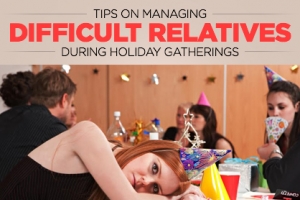4 Tips on Becoming a Happier You
We’ve all had those moments of feeling down. But for some, it is not merely moments. Nearly one in every 10 Americans suffer from depression. Whether you are one of them or simply in search of ways to balance your emotions in the face of life’s difficulties, psychologist Gregory Jantz can help. Author of “Overcoming Anxiety, Worry and Fear,” Jantz knows the ins and outs of feeling better about your life. He offers four tips to becoming a happier you.
Negative emotions, when accompanied by long-term, severe stress, can lead to depression. A Centers for Disease Control study revealed the top risk factors for depression are being unable to work or unemployed, having no health insurance and suffering from obesity.
“Depression can be rooted in a number of problems, and those need to be addressed – simply taking a pill is not usually effective treatment. Anger, fear and guilt can all be underlying causes, even when the person isn’t aware he’s experiencing those feelings,” Jantz explained.
He suggests a holistic treatment approach – such as the one offered at his clinic, The Center for Counseling and Health Resources – which could include medication and learning concrete techniques to manage this devastating illness. Individuals at risk for depression can try to achieve emotional equilibrium by offsetting negative emotions with optimism, hope and joy, especially by addressing the four primary aspects of human need.
“By purposefully feeding the intellectual, relational, physical, and spiritual aspects of your life positive emotions, you can achieve balance,” Jantz said.

Ready to hear how? Here are the tips.
The Intellectual Aspect: Become conscious of what you feed your mind with. This could mean reading a positive, inspirational book or simply making space in your life to get your intellectual fill with constructive, encouraging messages. Each day, believes Jantz, we come in contact with a great deal of negative input that needs to be countered with positive thinking. Stay aware of what you read and what you listen to to master this arena.
The Relational Aspect: Others can be our mainstay of emotional support. Find a loved one or even an acquaintance who makes you feel good about yourself, ideally someone you enjoy talking to and have fun with. Make time to sit down with that person this week, even if just for fifteen minutes. Try to verbalize your appreciation for the positive presence he or she provides in your life.
The Physical Aspect: While caring for your mind, don’t neglect your body. Physical activity in key in keeping your emotional health. This week, try to find some mild exercise that fits your groove. You don’t have to hit the gym. Make time for perhaps a quick stroll around the block or a walk through a city park. Just find some way to get your body moving, get away from your surroundings and focus on something new. Even enjoying the physical engagement of others can make a difference, allowing you to broaden your focus to the world around you. Jantz suggests watching someone play with her dog at a park or cheering kids on at a Little League game.
The Spiritual Aspect: Nourishing your spirit is critical to maintaining balance. Those who identify as religious should make time to attend services each week. If you are not part of a religious congregation, try listening to religious or meditative music, or possibly spend some moments in quiet reflection, meditation or prayer. It is important to have an activity that replenishes your spirit.
Even if you are not depressed but feel anxious and stressed or have difficulty sleeping, don’t ignore the warning signs. These can be signals that it is time to start taking care of yourself.
“Depression is painful and as debilitating as any other disease,” the psychologist maintained. “Take steps to de-stress your life and to work on emotional balance before it gets worse.”
With more than 25 years’ experience in mental health counseling, Gregory Jantz, PhD, has authored more than 20 books, some of which have become best sellers. He founded Seattle’s The Center for Counseling and Health Resources to provide “a place for hope,” offering comprehensive care that works on the medical, physical, psychological, emotional, nutritional, fitness and spiritual factors necessary for recovery. If you are worried that you or someone you know may be depressed, visit www.aplaceofhope.com for a free online self-evaluation.
Tagged in: advice, happiness, psychology, depression, spiritual, gregory jantz,

LadyLUX



